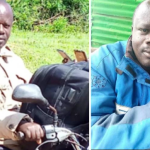When Pope Francis visits East Timor as the first pontiff to do so since the country gained independence, he will face a clergy embroiled in child abuse scandals that have been largely overlooked by the nation’s freedom heroes.
Among the cases is that of Nobel laureate Bishop Carlos Ximenes Belo, a key figure in East Timor’s fight for independence from Indonesian occupation, who was quietly sanctioned by the Vatican following allegations of sexually abusing children for decades.
As the 87-year-old pope arrives in the predominantly Catholic country on Monday, part of his Asia-Pacific tour, there are growing calls for him to address the issue of child abuse during his visit.
“We ask Your Holiness to encourage the leaders and the people of Timor-Leste to take more effective measures to prevent sexual abuse,” the Timor-Leste NGO Forum, a civil society coalition, wrote in a letter Wednesday to Francis.
BishopAccountability.org, an organization that documents abuse within the Catholic Church, has urged Cardinal Sean O’Malley, head of the Vatican’s sexual abuse commission, to encourage Pope Francis to “champion the victims” during his visit to East Timor. The country, with a predominantly Catholic population, is one of many affected by the global issue of clergy-related child abuse, which has often been shrouded in secrecy.
In 2002, Pope John Paul II accepted the sudden resignation of Bishop Carlos Ximenes Belo, who was then the head of East Timor’s church and a Nobel Peace Prize laureate. The Vatican cited health reasons for his departure but offered no further explanation. Belo was subsequently sent to Mozambique as a missionary, where he continued working with children, before relocating to Portugal.
In 2020, the Vatican quietly sanctioned Belo after allegations emerged that he had sexually abused underage boys over a 20-year period leading up to 2002. The sanctions barred him from any contact with children or with East Timor, conditions that Belo reportedly accepted.
The Vatican only publicly acknowledged these restrictions after a 2022 report by Dutch magazine De Groene Amsterdammer, which included testimony from a victim who claimed Belo had raped them. The report also revealed that allegations against Belo had been known as early as 2002.
Pope Francis later remarked that the decision to allow Belo to retire rather than face consequences was made during a time when attitudes toward such issues were different.
– Widespread support –
The bishop had won the Nobel Prize for his defence of human rights during the Indonesian occupation, which lasted more than two decades.
He is revered at home for sheltering young demonstrators and saving their lives.
It has helped him retain strong support among the country’s 1.3 million people, of which 98 percent are Catholic.
“We feel we have lost him. We miss him,” Maria Dadi, East Timor national youth council president, told AFP.
“Because after all he really contributed to the struggle of Timor-Leste.”
In another case, defrocked American priest Richard Daschbach was found guilty in 2021 of abusing orphaned, disadvantaged girls.
He was sentenced to 12 years in prison, but has also found support at the highest levels of Timorese society.
Prime Minister Xanana Gusmao courted controversy last year when he visited Daschbach to celebrate his birthday and shared cake with the convicted paedophile. He also attended his trial.
For many in the country, they favour Belo returning for the pope’s visit.
“We are very sad without the presence of Bishop Belo,” said 58-year-old academic Francisco Amaral da Silva.
“The government and the Catholic Church should invite him.”
East Timor’s presidential office did not respond to a request for comment. President Jose Ramos-Horta has said punishments for Belo should be handled by the Vatican.
– ‘Limited value’ –
The pontiff will meet with the Catholic faithful, children, Jesuits and preside over a huge mass during his stay in the capital Dili.
But it remains unclear if he will raise cases that have shocked observers of one of the world’s poorest countries.
The pope’s schedule does not include a meeting with victims, and the Vatican did not comment before he departed Rome.
Yet he could ad-lib the subject in one of his speeches, which would be a strong gesture.
Francis could also meet victims privately as he has done before, the latest on a 2023 Portugal trip.
But survivor advocates said the pope must acknowledge the sexual violence by Church officials on East Timorese children, including by Belo.
“Those abused by Bishop Belo and other clergy will expect a public statement by Pope Francis on the Church’s continued failure to deal with its wayward clergy,” said Tony Gribben, founder of the Northern Ireland-based Dromore survivors group.
Gribben said a meeting would “have limited value”, citing apologies given by Francis to abuse victims on an Ireland trip in 2018.
“The event was a well-crafted PR exercise,” he added.
“But since then, it’s business as usual.”



